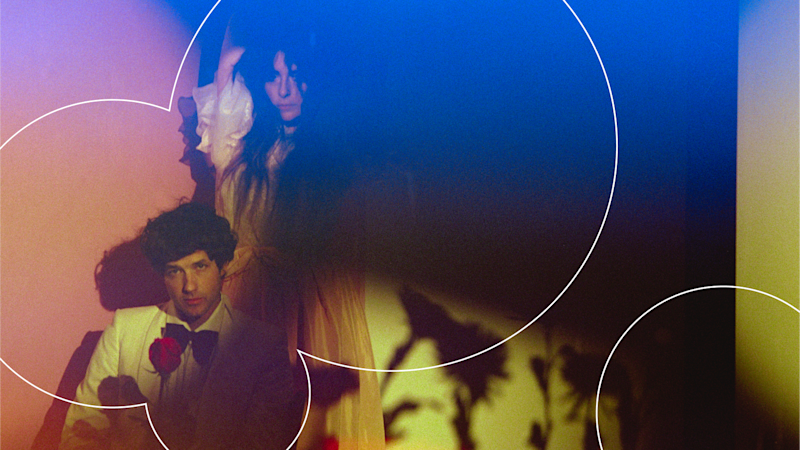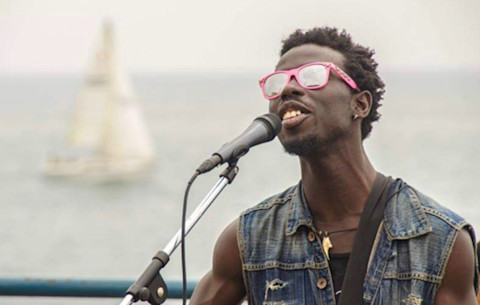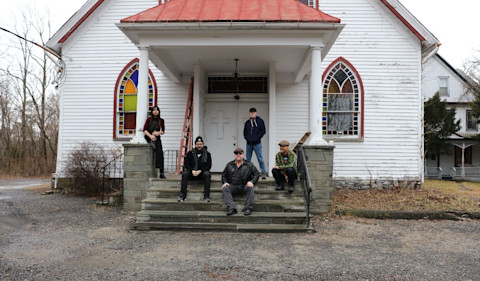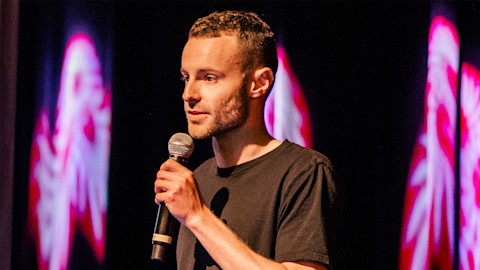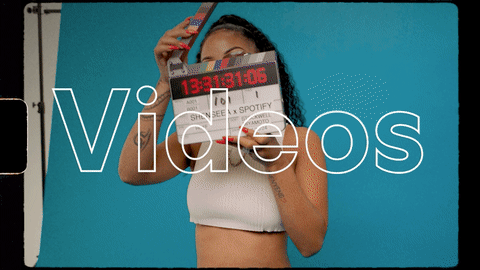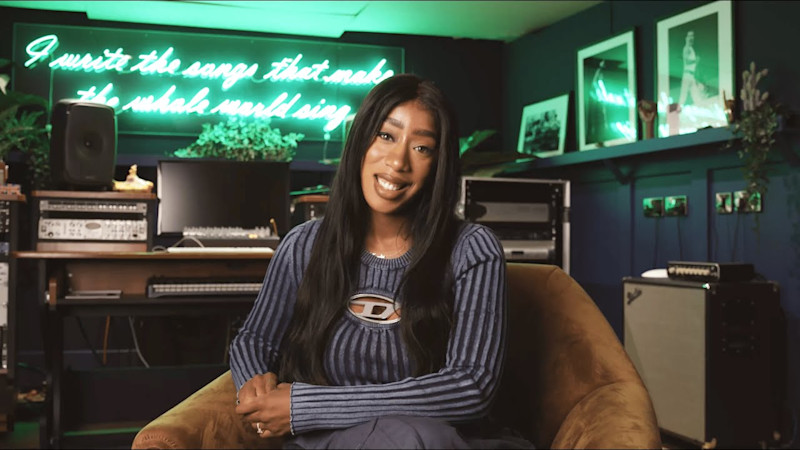Black Pumas may have pulled off the trick of combining bluesy swagger, laid-back soul, and modern production in a way that doesn't invite the "retro" tag, but the duo's origin story is pure throwback. Singer-songwriter Eric Burton came up busking—first in his native Southern California, then on the road, and, in time, on the streets of his current home of Austin, Texas. It was in Austin that he met Grammy-winning guitarist and producer Adrian Quesada (Grupo Fantasma, Brownout) and discovered a chemistry powerful enough to pull him into the studio, where Black Pumas were born.
But that's only half of it: Buzz about the project spread via honest-to-god word of mouth thanks to the pair's rip-roaring 2018 residency at C-Boy's, an Austin bar. As word spread about Burton's onstage passion, the Pumas earned not only a rep as rock's next big thing but also a record deal with ATO, who released their acclaimed self-titled debut in June. The Pumas' rise is proof that there's no one way to make it in this industry, so we thought we'd pick Burton's brain about his unusual roots.
Spotify for Artists: How did you find your way to busking? It's not the usual career launchpad these days.
Eric Burton: I moved around quite a bit after my elementary school days, and used music and performance to fit in at different schools. I always found a home in theater classes with all the kids that were a little left of center. As soon as I got the opportunity, at 18, I was like, "I'm auditioning for American Idol. I'm going to play on the street and on trains..." I met a couple guys on the Santa Monica Pier who showed me how to get my busking permit, and so I'd take my cart with my PA, microphone stand, and guitar, and just plug in and play. I'd always wanted to create and perform, and I actually found it more profitable than working at some random local spot.
How'd you get to Austin?
By the generosity of people around me. After about six months [on the Santa Monica Pier], I met another couple guys and we decided to take to the road. We traveled for a few weeks, up the West Coast to Seattle, then back down through the national parks. We'd saved about $1000 apiece, but everywhere we went we were either given gigs or a place to stay because people appreciated the music. We wound up on the streets of New Mexico, with nothing in our pockets, gas tank on "E," but I have friends and family there, so we did a big show and made enough to get to Austin, which is where one of the guys was from. I started busking and couch-surfing and got injected into the arts and music scene swiftly. When the guys were ready to move on, I was like, "Man, I'm not going anywhere."
How did performing in the streets change what happened when you took the stage for your C-Boy's residency?
I learned through busking on the street that the only way I could touch people was to be myself and be completely free. Because people aren't there for you—they're on their way to do what they need to do—so if you aren't doing it for yourself, you're probably going to be really upset about the lack of attention you're getting. It really put me in a space where every time I busked, my performance was reflective of how I felt singing in the shower, or dancing in the garage while playing guitar alone at night. That actually got people's attention, and now that they're here for me and expecting something, I have some substance to give because I'm completely honest.
![Eric during his early days as a busker, Photo by Fabian Lewkowicz]()
Eric during his early days as a busker, Photo by Fabian Lewkowicz
Has your busking experience helped you when it comes to making bigger career decisions? I'd imagine it would nurture a strong sense of self-reliance.
Exactly. After I got established in Austin, I rented a house and was working on a home studio. Producers or musicians would reach out to me to sing or play on albums, but I would put them off because I was more interested in figuring out my own sound before jumping on someone else's train of tastes. It took me a week or two to get back to Adrian, but he was persistent. He said that when he saw videos of me performing, he could see the soul of a person who wasn't trying to fit a certain mold. I think the fact that he could see that is reflective of his honesty and that's important. Now everyone we work with moves in that energy. We're not thinking about quick money because the music is more valuable than just making a little piece of change.
I'm guessing it also gives you a thick skin, which is important in this business.
Oh yeah. When you're busking there's a fear of not being accepted that builds up over time whether you're succeeding or not, because in performing in front of others, you're trying to learn something new each time: "What can I do next time to be accepted?" The biggest challenge is knowing, "I'm not just a performer. I'm a human being and I deserve love — from myself first." If you do that, you can brush off a bit of pressure because it shouldn't matter what others think of you. Sometimes I can get fooled: We're going to Europe, or selling out shows on the coasts, and it seems like people are really starting to pay attention and the pressure does come on. But then I remember that they're paying attention because of the energy of how I started in the first place: enjoying the California sunshine, playing in complete freedom and acceptance of myself.
What advice would you give a young artist considering street performance?
It's not very fulfilling to put on a clown mask just to get attention or make other people feel good. You can't focus on what other people want, or if they're going to give money. You have to be in a position where you can be honest with yourself about what you want to accomplish as an artist, then busk in that feeling so that you set the boundaries up front and it doesn't feel like you're throwing your energy out aimlessly. I didn't see a career in busking, and I can count how many covers I know on one hand. I saw it as an opportunity to learn to write and perform great music while getting to know myself in that. This is where I always envisioned myself: on a big stage, performing in front of a ton of people, having really cool outfits, and being very expressive.
—Chris Martins
